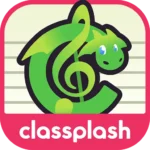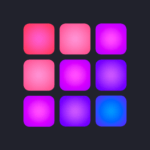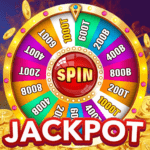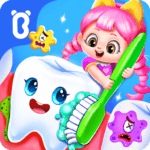BabyBus Kids Science
BabyBus
Dec 28, 2022
Nov 28, 2023
149.7 MB
10.03.09.18
Android 5.0+
Description
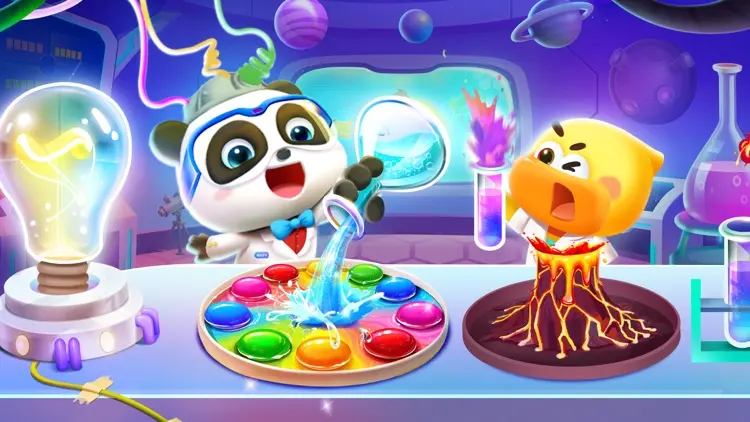
Overview of BabyBus Kids Science
BabyBus Kids Science is an innovative educational initiative designed to introduce young children to the world of science. This program, targeting kids aged 3 to 8, aims to spark their curiosity and enthusiasm for learning through a series of engaging and interactive games, videos, and activities. The content is carefully crafted to be age-appropriate, with a focus on basic scientific concepts and principles.
At the heart of BabyBus Kids Science is the belief that early exposure to science can lay a strong foundation for lifelong learning and critical thinking. The platform uses vibrant animations, friendly characters, and playful narratives to make complex ideas simple and accessible. This approach not only makes learning enjoyable but also encourages children to explore, ask questions, and discover the wonders of the world around them.
Whether it’s understanding the basics of physics, exploring the natural world, or getting acquainted with simple experiments, BabyBus Kids Science provides a safe and stimulating environment for young minds to grow and develop. By blending education with entertainment, it aims to cultivate a generation of inquisitive, knowledgeable, and confident young scientists.
Main Features of BabyBus Kids Science
- Interactive Learning Games: BabyBus Kids Science offers a variety of interactive games that teach science concepts in a fun and engaging way. These games are designed to stimulate curiosity and encourage exploration, making learning a hands-on experience.
- Educational Videos: The platform includes a range of animated videos that explain scientific concepts in simple, easy-to-understand language. These videos are both educational and entertaining, keeping young learners captivated while they learn.
- Age-Appropriate Content: All content on BabyBus Kids Science is tailored to be age-appropriate, ensuring that the scientific concepts are presented in a way that is understandable and relatable to young children.
- Diverse Science Topics: The program covers a wide range of science topics, from basic physics and chemistry to biology and environmental science. This diversity helps to broaden the children’s knowledge and interests in different areas of science.
- Character-Based Learning: BabyBus Kids Science utilizes friendly and relatable characters to guide children through their learning journey. These characters often embark on adventures or face challenges that incorporate scientific learning, making the experience more immersive.
- Parental Controls and Tracking: The platform includes features for parents to monitor and track their child’s progress. This allows parents to see what their children are learning and how they are performing in the games and quizzes.
- Interactive Quizzes: To reinforce learning, the platform offers quizzes and tests that help children review and apply what they have learned. These quizzes are interactive and provide instant feedback, which aids in better retention of knowledge.
- Safe and Ad-Free Environment: BabyBus Kids Science is designed to be a safe and secure environment for children, free from ads and inappropriate content. This ensures a focused and uninterrupted learning experience.
- Regular Updates and New Content: The platform is regularly updated with new games, videos, and learning modules, ensuring that the content remains fresh, engaging, and in line with current educational standards.
- Multilingual Support: Understanding the need for accessibility, BabyBus Kids Science offers content in multiple languages, making it accessible to a wider range of children from different linguistic backgrounds.
Some Pros and Cons of BabyBus Kids Science
Pros of BabyBus Kids Science
- Engaging and Interactive Learning: The platform’s use of interactive games and animated videos makes learning science concepts enjoyable and memorable for young children, fostering a love for science at an early age.
- Age-Appropriate Content: BabyBus Kids Science ensures that all its materials are suitable for young learners, presenting complex scientific ideas in a simple, understandable manner.
- Wide Range of Topics: Covering various fields of science, the platform provides a comprehensive introduction to different scientific concepts, helping to broaden children’s knowledge and interests.
- Safe and Ad-Free Environment: The commitment to providing a safe, ad-free learning space allows children to explore and learn without distractions or exposure to inappropriate content.
- Parental Involvement and Tracking: Features for parental monitoring and tracking of children’s progress facilitate involvement in the child’s educational journey and help gauge learning outcomes.
Cons of BabyBus Kids Science
- Limited Depth in Topics: While great for introduction, the platform may not delve deeply into scientific concepts, potentially requiring supplementary materials for advanced learning.
- Language Limitations: Despite offering multilingual support, some languages may have limited content, potentially restricting access for non-English speaking children.
- Requires Technological Access: Dependence on digital devices and internet access could limit availability for children in areas with limited technological resources.
How to Use BabyBus Kids Science?
- Download and Install: Start by downloading the BabyBus Kids Science game from the Apptofounder. Get the renown by searching for “BabyBus Kids Science” Install the game on your device.
- Create an Account: You may need to create an account to access the full range of features. Usually, this entails setting up a password and giving an email address. Options for social networking login may also be available in some applications.
- Select a Profile: If you have multiple children using the app, you can create separate profiles for each child. This allows the app to tailor content to the child’s age and learning level.
- Explore Content: Once you’re logged in, you can start exploring the app’s content. You’ll find a variety of games, videos, and activities covering different science topics.
- Choose Age-Appropriate Content: Make sure to select content that is appropriate for your child’s age. The app often categorizes content by age group to help you choose the right level of difficulty.
- Play Games and Watch Videos: Encourage your child to play interactive games and watch educational videos. These activities are designed to be fun and engaging while teaching scientific concepts.
- Monitor Progress: Many apps offer features for parents to track their child’s progress. You can see which activities your child has completed and how well they performed.
- Engage in Discussions: After playing games or watching videos, engage in discussions with your child. Ask them questions about what they learned and encourage them to explain scientific concepts in their own words.
- Set Screen Time Limits: It’s important to manage screen time for young children. Set appropriate screen time limits to ensure a balanced daily routine.
- Enjoy Together: Whenever possible, participate in the learning experience with your child. This not only strengthens the parent-child bond but also reinforces the educational value of the content.
- Stay Updated: Check for app updates regularly. Developers often release new content and improvements to enhance the learning experience.
- Parental Controls: Familiarize yourself with the app’s parental control features. These may include options to restrict access to certain content or set time limits.
Alternatives
- PBS Kids: PBS Kids offers a wide range of educational games, videos, and activities based on popular children’s shows. It covers various subjects, including science, math, and literacy.
- Sesame Street: The Cookie Monster’s Challenge: This app features beloved Sesame Street characters and offers games that teach STEM concepts in a fun and engaging way.
- Toca Boca: Toca Boca offers a collection of creative and open-ended play apps that encourage imaginative exploration. While not science-specific, they promote critical thinking and problem-solving.
- Fish School: Fish School is an app designed for preschoolers to teach essential early learning skills, including numbers, letters, colors, and shapes.
- Moose Math: Moose Math is an app that combines math and critical thinking games with an engaging storyline, making learning both fun and educational.
Final Words of BabyBus Kids Science
In conclusion, BabyBus Kids Science is a valuable educational resource for young children, offering an engaging and interactive platform to introduce them to the wonders of science. With age-appropriate content, interactive games, and educational videos, it encourages curiosity and learning from an early age.
Parents and caregivers can use BabyBus Kids Science as a tool to spark their child’s interest in science while providing a safe and ad-free digital learning environment. The platform’s diverse range of topics and character-based learning make it an enjoyable experience for kids.
However, it’s essential to balance screen time with other activities and ensure that children have a well-rounded learning experience. BabyBus Kids Science, like any educational app, is most effective when used in moderation and in conjunction with real-world exploration and discussions.
Ultimately, BabyBus Kids Science can play a positive role in fostering a lifelong love for learning and scientific inquiry in young minds, setting the stage for a bright and curious future.
Frequently Asked Questions (FAQs)
Is BabyBus Kids Science Free?
BabyBus Kids Science typically offers a free version with limited content and a premium subscription option that unlocks full access to all games and videos. The availability of free content may vary.
Is BabyBus Kids Science Safe for Children?
Yes, BabyBus Kids Science is designed to be a safe and child-friendly environment. It is free from ads and inappropriate content, making it suitable for young learners.
What Topics Does BabyBus Kids Science Cover?
BabyBus Kids Science covers a wide range of science topics, including basic physics, chemistry, biology, and environmental science. The content is diverse to provide a comprehensive introduction to science.
At What Age Should My Child Start Using BabyBus Kids Science?
BabyBus Kids Science is designed for children aged 3 to 8. Parents can introduce it to their children when they are developmentally ready and interested in exploring educational content on digital devices. It’s essential to monitor screen time and engage in discussions with young users.

